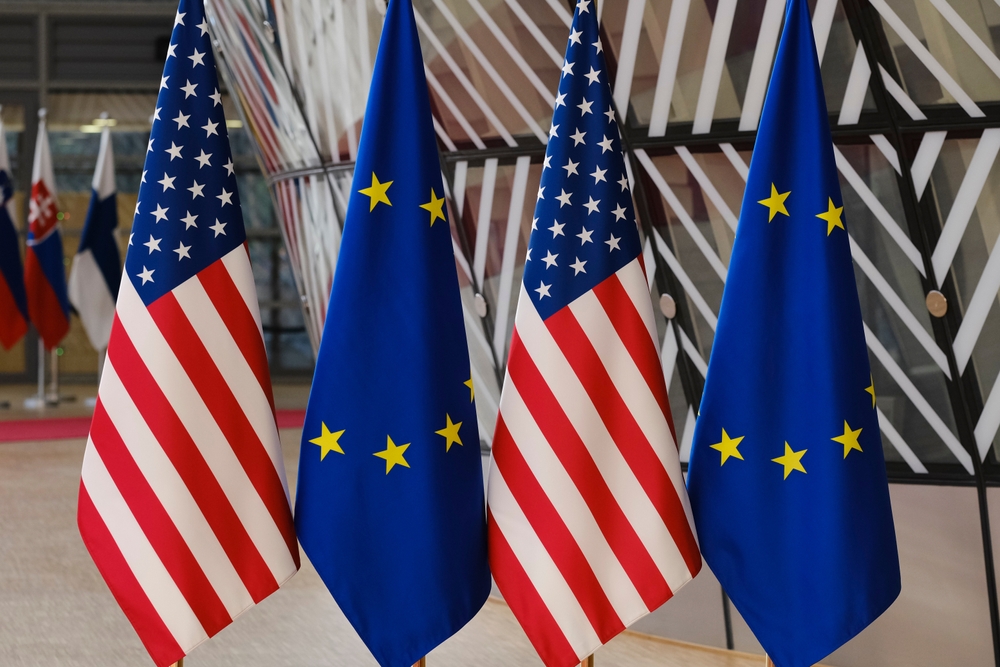He is one of the foremost experts on German-Polish relations. Karolewski talks about the current political and economic situation in Poland, its influence of Europe, and the challenges posed by border controls.
Poland is becoming an increasingly important player in the EU, both economically and politically, but above all in terms of defence policy. However, domestically, Poland is finding this role rather difficult. Europe is a highly controversial topic. While Prime Minister Donald Tusk is pro-European, the newly elected President Karol Nawrocki is, to put it mildly, critical of Europe. How should the current situation be interpreted?
The political situation in Poland is tense. Europe is certainly an important arena in which liberal and conservative-nationalist forces will compete.
However, the distinction between pro-European and anti-European views is not always clear-cut. Conservative nationalists do not oppose the EU as a whole. In fact, the conservative-nationalist camp wants to secure funding from Brussels, particularly when they form a government. These funds can then be used to invest in projects that can be used to demonstrate the party’s success and political effectiveness. They are more concerned with criticism from Brussels regarding violations of the rule of law, seeing this as interference in the country’s internal affairs. The European Green Deal is also controversial because it is rejected on ideological grounds. However, conservative nationalists have little criticism of the EU’s internal market because Poland benefits greatly from it. Nevertheless, Nawrocki’s election will lead to numerous points of friction with the Tusk government.
It is expected that Nawrocki will make life as difficult as possible for Tusk. According to the constitution, who has the greatest formal influence on European issues?
The president does not implement EU policy directly, nor does he have political access to the ministries responsible for the country’s day-to-day EU policy. Nevertheless, he can make life difficult for the government. The Polish president has the power to veto laws, thereby blocking them. This also applies to EU directives, which are first implemented by member states through national legislation. Although this would result in Poland being fined by the EU, it could nevertheless become an area of conflict in which the new president asserts his authority.
And what about politically? Did the vote of confidence, which confirmed support for him, enable Donald Tusk to strengthen his position in the long term?
Only to a limited extent. It was necessary to silence the calls for his resignation, particularly from coalition partners, and to enable the government to resume its work. However, this coalition government, consisting of conservative, left-wing and centrist parties, is mainly holding together because the smaller coalition partners of Tusk’s Civic Coalition (KO), such as the conservative Poland 2025 party and the PSL farmers‘ party, fear failing to win back seats in parliament in early elections. Since December 2023, the government has not exactly distinguished itself through effective cooperation.
Which factors explain the division of Polish society into pro-European and Eurosceptic groups? As in other countries, are these differences primarily urban-rural and generational?
Both factors play an important role. Most cities with populations of more than 50,000 voted for the liberal Trzaskowski. In contrast, rural populations, particularly older and less educated voters, voted for the nationalist Nawrocki. However, this does not fully explain why the pro-European candidate failed. The decisive factor was probably young people who voted for the current coalition parties in October 2023 but either voted for Nawrocki in June 2025 or did not vote at all. This is partly because the Tusk government has performed poorly among young people, mainly due to its lack of initiative despite making numerous election promises, such as liberalising abortion laws and improving the labour market. The president’s threatened veto was used as justification. The failure of the KO candidate can therefore be interpreted as a punishment to the liberal elites in Poland for assuming that forming an anti-PiS government would be enough. Now, it seems that young voters do not share this view.
Which image of Europe dominates in Poland: that of bureaucracy or freedom? What role do Russia and the USA play in this perception?
For most citizens, the EU seems distant and plays hardly any role in their everyday lives. Of course, certain social groups benefit directly from the EU, such as farmers and students. Young people take freedom of movement and freedom of establishment for granted, so border controls in the EU are a novelty for them. They can study anywhere in the EU and receive financial support to do so. This is a major achievement of European integration. However, the EU’s image in Poland is ambivalent. For instance, Polish entrepreneurs value access to the European single market. Nevertheless, they continue to view many EU regulations as unreasonable because they incur high administrative costs and impose unwanted restrictions on economic activity. Russia and the US are viewed primarily in the context of NATO, given that the EU alone has limited military capacity. Some fundamental criticism of the EU, for example from Donald Trump, is also adopted by Polish national conservatives, who see the EU primarily as a threat to national sovereignty. This false line of thinking, however, appeals to many people, especially those with little knowledge of the EU.
How important is the issue of Ukraine for Poland’s view of the EU?
I think it’s a small one. The Ukrainian diaspora has become an integral part of Polish society, regardless of EU membership. Around one million Ukrainians currently live in Poland. They also account for 2.7% of Poland’s GDP, and many sectors of the economy would not be able to survive without them. Around a year ago, there were concerns in Poland that Ukrainians would leave for other EU countries, which would cause considerable damage to the Polish economy. However, Poland’s cultural and geographical proximity to Ukraine seems to be an important factor.
And what about migration? The new German border regulations have caused particular irritation in Poland. After the new German Chancellor, Friedrich Merz, travelled to Paris and Warsaw on his first day in office, is there a threat that German-Polish relations will deteriorate again?
Poland views the German border regulations as completely excessive, seeing them primarily as a political manoeuvre to demonstrate to the electorate in Berlin that the government is addressing the issue of migration. There are serious doubts about the effectiveness of this measure. Meanwhile, people living in the border region on both sides of the German-Polish border are facing significant restrictions in their daily lives. Prime Minister Tusk has threatened to introduce similar controls on the Polish side of the border if the German regulations remain in place for much longer. This would not help anyone and would damage German-Polish relations, which is not an ideal development in view of Russia’s war in Ukraine. Instead of blocking their own border, Berlin and Warsaw need to work even more closely together.
Poland has experienced an enormous economic boom. Even The Economist recently ran a cover story on the subject. How has this economic growth affected the country and its society? Are there any ‚growing pains‘?
Over the past 30 years, Poland’s economy has developed extremely positively. The term ‚Polish economy‘, which was previously used pejoratively, must now be reinterpreted. This is particularly evident when we consider Poland’s economic growth in the context of Germany’s neglect of its physical and digital infrastructure over the years. The differences are striking. However, not everyone in Poland has benefited equally from the country’s rapid modernisation. As always happens with such processes, some people are left behind in the transformation and modernisation. Liberal elites should consider these people too, otherwise they will become easy prey for populist actors.
Ireneusz Pawel Karolewski  is a political scientist and professor of political theory and democracy research, as well as being the co-director of the Jean Monnet Centre of Excellence 'Problems of Representation' at the University of Leipzig. His areas of expertise are democratic theory, democratic citizenship, and nationalism. He is currently researching de-democratisation and the problems of representation in democracies.
is a political scientist and professor of political theory and democracy research, as well as being the co-director of the Jean Monnet Centre of Excellence 'Problems of Representation' at the University of Leipzig. His areas of expertise are democratic theory, democratic citizenship, and nationalism. He is currently researching de-democratisation and the problems of representation in democracies.
Copyright Header Picture: Shutterstock_Mike Mareen
Könnte Sie auch interessieren
2. Februar 2026


